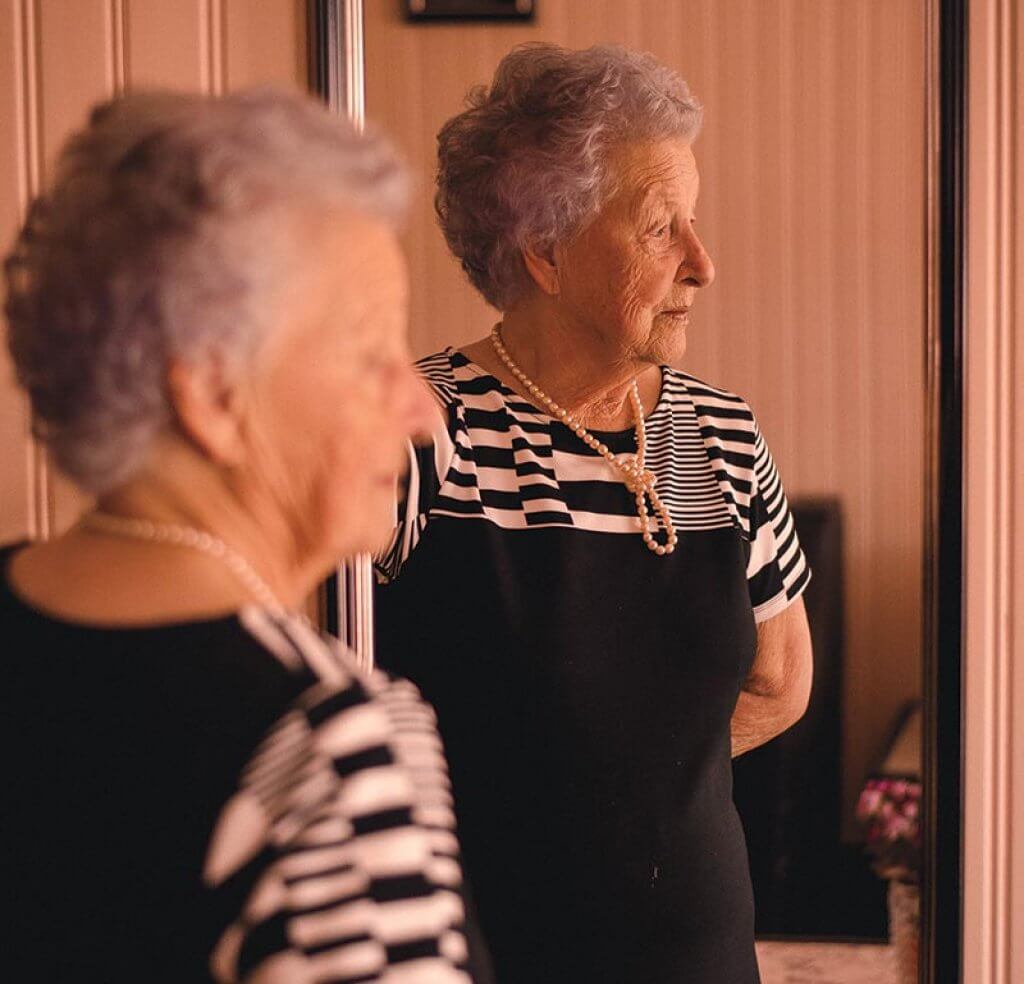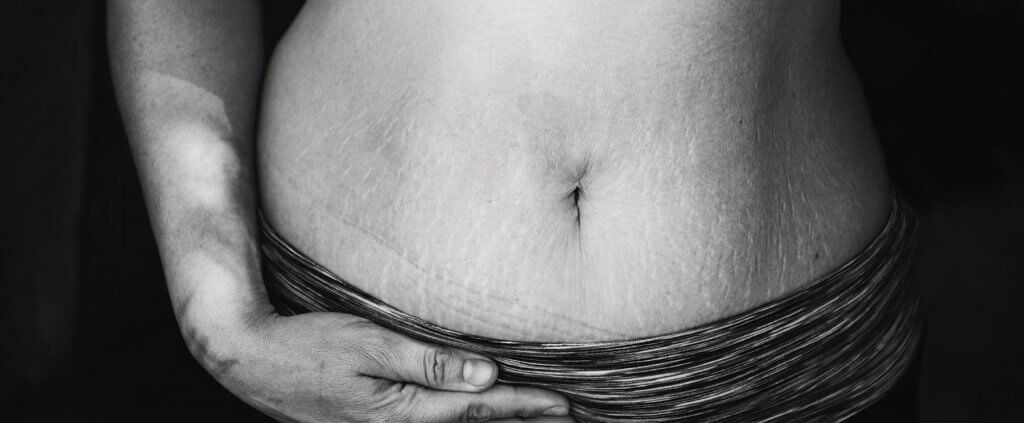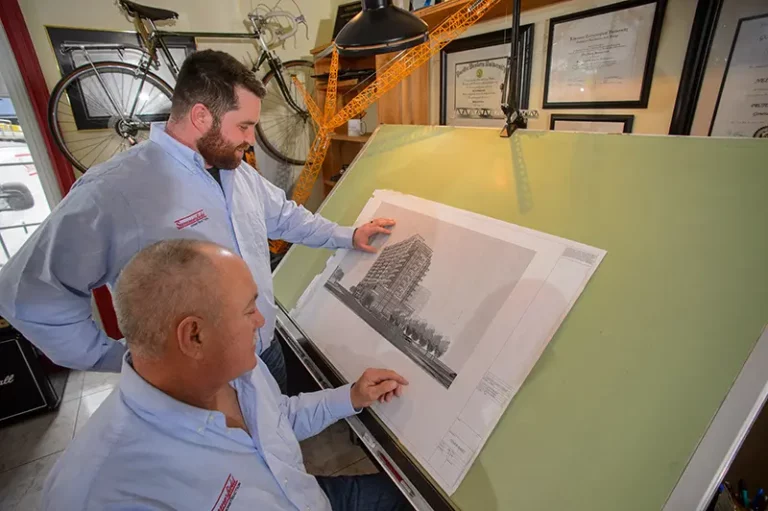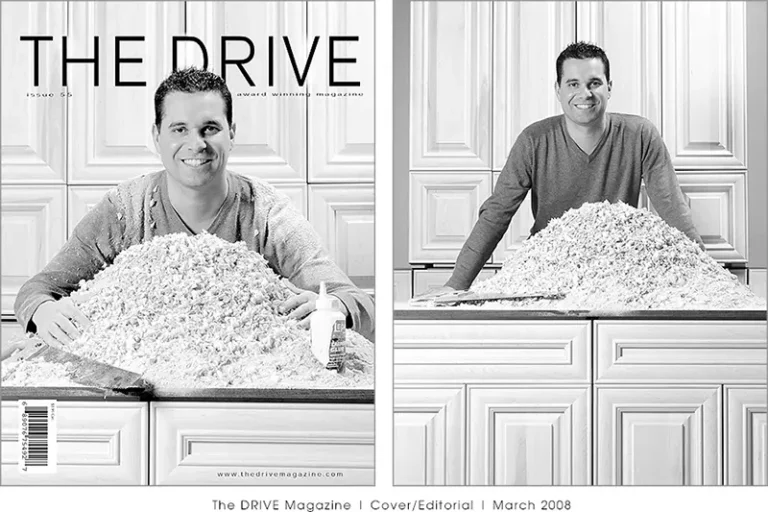Why are older women enduring the same body image issues they went through as teenagers?
As a society, we’re led to believe that the insecurities and self-consciousness of our younger years were, thankfully, a passing phase. Throughout our adolescence we’re assured that we’ll come into ourselves as we age, shedding our self-doubt and emerging confident, secure, and free of bodily worries.
The realities of this can be very different for some—recent findings demonstrate that body image concerns can be a very present concern for women in their fifties.
Often classified as a decidedly youthful concern—and particularly a concern of women—struggles with our appearances don’t fade with age. Quietly, a significant number of women are suffering from acute body image issues that continue into their later years.
As we age many of us gain the confidence and self-assurance our younger selves longed for. So what is it that would prompt a reversal of this progress?
An ageless concern
Body image problems are, unfortunately, common. It is estimated that at least 92 percent of women will experience a body image problem at some point in their lives, and take measures to correct it through diet and exercise. It is also estimated that 2 to 3 percent of these women will develop an eating disorder.
The general consensus in the past has been that young people are the most susceptible to this—pressures from peers, social media, and hormonal changes are the usual scapegoats.
This idea doesn’t capture the entirety of body image issues, which are often discussed but not completely understood. Jennifer White, a clinical psychologist in Windsor, shares that body image issues are not limited by age, despite what we commonly see represented.
“We know that body image improves through our twenties and into our thirties, but then dips again after the age of 55, and are seen more commonly now in women experiencing menopause. Approximately 70 percent of women over 50 are actively trying to lose weight or dieting, and view their appearance as very influential in their self-worth.”
Medical professionals report seeing an uptick in reported body image concerns for older generations, demonstrating a greater range in age groups than previously observed. Why has this notion been previously unknown? In part, White explains, it’s because older women typically feel more ashamed to talk about these concerns and as a result, have been historically less likely to come forward.
Many women continue to feel their weight and shape play a moderate to important role in dictating their ability to self-love; it’s a large part of their identity over which they feel they have less control, particularly as they age.
Women in their fifties find themselves in an age of change, as they transition into another role in their lives. When children become more independent, with some leaving home, many mothers struggle to redefine or re-evaluate themselves. Some individuals who wanted children but did not have them may also go through a transition of the end of their childbearing years, as that chapter in their lives comes to a close.
“Any time of transition can set us up for mental health challenges if we’re not mindful and purposeful about who we want to be as we go through it,” says White.
“We as a society don’t have a lot of conversations about the challenges of these changes for older women, or the importance of our own value systems and making sure not to overvalue things like appearance.”
Brain vs. body issues

“A body image problem is a brain problem, not a body problem,” says White. “It all comes down to how we think we should look compared to how we actually look. We’re really not that great at self-evaluating.“
– Jennifer White
White mentions nearly all of her clients agree that their perceived body image shifts faster than our bodies could possibly change—how else could we explain being seemingly fine with our bodies one day, and then disgusted by them the next?
She also explains that these body image challenges often boil down to emotional discomfort or physical discomfort. Any time a client is experiencing challenges facing body image, White urges them to realize that it really isn’t about how we look.
“I encourage people to ask themselves, ‘Am I anxious, uncomfortable, physically stressed, or tired? Am I retaining more water than usual?’ These are the real things happening,” says White. “Here’s a solution to some of those specific issues: change into comfier clothes and try to worry less.”
When questioned about how age changes our specific body image concerns, White explains that it doesn’t really. She shares that the body image issues her female clients struggle with do not discriminate. “Ninety-five percent of the time, regardless of age, shape, weight, or height, women will say their problem areas are stomachs, hips, and thighs. These are the complaints across the board. These tend to be what women really are upset about.”
Wouldn’t “become more active” be essential here? Her “solution” isn’t addressing the problem at all.
Five things healthy people don’t do
White shares several of tell-tale signs that body image issues might be prevalent, negative behaviours that should be avoided, and what to remember if troubled by these concerns.
1. Comparing yourself to others.
It’s a no-win game, says White. “We compare ourselves to people who meet our standard. If you set out to compare yourself, you’ll end up feeling worse.” If you find yourself going down the compare-and-despair route, stop yourself.
2. Picking yourself apart.
Body image dissatisfaction includes self-scrutiny even before actually seeing ourselves in the mirror. “When we go looking for something, we’ll find it, even if it’s not really there. We’re not pieces and parts; so don’t reduce yourself to these. Evaluate yourself positively.”
3. Engaging in negative body talk.
White has trained everyone she knows to be kinder to themselves. “I will overhear conversations between women. They’ll compliment others and put themselves down.” White urges us to redirect our topics of choice. “Negative body talk is toxic and serves nobody. Find a new topic—or, if this is inescapable due to your social circle, find new friends.”
4. Hiding.
Sometimes we need to fake it until we make it, but we are naturally drawn to confident people, so we should strive to exude that same confidence. “Stand up straight, smile, and have confidence. Whatever you got, you’ve got to own it. Be unapologetic and people will respond positively.”
5. Dieting.
“Don’t delude yourself into thinking you’ll be happy at X pounds. You’ll be happy when you treat yourself best.”
Combat the return of body image issues
Menopause happens around the same time as other physiological changes, as well as family and job structure changes—it’s a major transitional era.
These dramatic lifestyle transitions can feel like loss, and this often prompts the return of psychological challenges, including body image issues. According to White, the key to managing body image concerns during the transitions we all encounter in our later years comes down to growth and security in who we are.
“Instead of having these external labels as ‘mother’ or ‘professional’defining our identity, it’s important to know yourself and go into these years not with the framework of loss, but a growth mindset,” says White. “Think about who you want to be. Define yourself outside of the label of wife, mom, and what you did in the workplace. ”
As we come into this next phase of life, it’s important to be mindful and purposeful about coming to terms with who we really are and who we want to be.
“We all have inner strengths, traits, and qualities that have gotten us through tough times—we need to recognize what makes us each special and unique. This will prepare us for the challenges ahead and allow us to continue to thrive as we move forward.”



